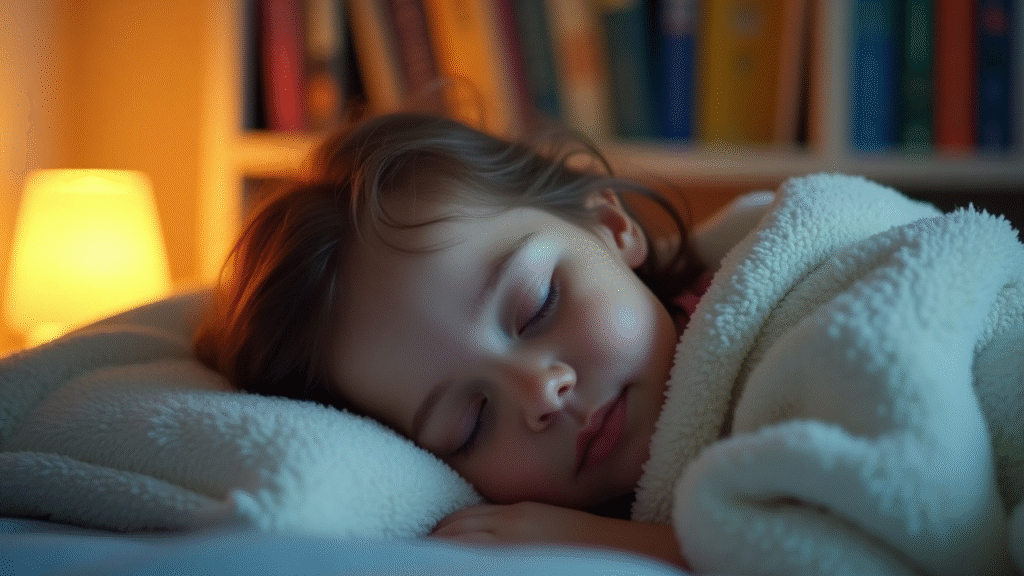In today’s tech-driven and busy lifestyle, children often end up sacrificing sleep for screens, studies, or late-night activities. While many parents think kids can “catch up on sleep later,” science strongly disagrees. Quality sleep is as essential for children as healthy food and exercise. In fact, building strong sleep habits for children is one of the most powerful ways to ensure they grow into healthy, focused, and emotionally balanced adults.
Let’s dive into what science says about sleep, why routines matter, and how parents can help shape healthier nights for their children.
Why Sleep Habits for Children are Crucial
When adults skip sleep, they often feel tired, sluggish, or cranky. For children, the impact goes even deeper. The early years of life are marked by rapid brain development, physical growth, and learning. Sleep fuels all of these processes. Strong sleep habits for children not only restore energy but also help regulate hormones, strengthen the immune system, and build cognitive skills.
A child who consistently gets adequate sleep has:
- Better concentration and problem-solving skills
- Improved emotional regulation (fewer tantrums and meltdowns)
- Stronger memory and learning retention
- Healthy physical growth due to growth hormone release during sleep
On the flip side, poor sleep habits for children can lead to hyperactivity, learning struggles, anxiety, and even long-term risks such as obesity or weakened immunity.

The Science of Sleep and Brain Development
Scientists studying child development often highlight the importance of sleep cycles. A night of rest isn’t just “shutting down” — the brain is highly active during deep and REM (rapid eye movement) sleep. These cycles are when the brain processes the day’s experiences, stores memories, and builds connections between neurons.
Studies have shown that children with consistent sleep habits score higher on academic tests, display better creativity, and show stronger emotional resilience. On the other hand, irregular routines or chronic sleep deprivation can cause difficulties in attention span, impulse control, and social interactions.
For example, research from the American Academy of Pediatrics shows that even losing one hour of sleep per night over a week can significantly affect a child’s mood and school performance. Clearly, maintaining healthy sleep habits for children is not optional—it’s foundational.
How Much Sleep Do Children Really Need?
The amount of sleep needed varies by age. Here are science-based recommendations from the CDC (Centers for Disease Control and Prevention):
- Toddlers (1–2 years): 11–14 hours (including naps)
- Preschoolers (3–5 years): 10–13 hours
- School-age children (6–12 years): 9–12 hours
- Teenagers (13–18 years): 8–10 hours
These ranges make it clear that strong sleep habits for children must include not only bedtime consistency but also ensuring enough total hours of rest. Skipping just an hour each night can quickly add up to “sleep debt” that affects development.

Challenges Parents Face with Sleep Habits
Even with good intentions, many parents struggle to establish consistent sleep habits for children. Common challenges include:
- Bedtime Resistance: Children delay sleep with excuses like “one more story” or “five more minutes.”
- Night Waking: Many kids wake during the night due to nightmares, discomfort, or anxiety.
- Technology Distractions: Screens before bed overstimulate the brain and reduce melatonin production.
- Busy Schedules: Homework, extracurricular activities, or family routines often push bedtimes later.
These hurdles are common but manageable with patience and the right strategies.
Proven Tips to Improve Sleep Habits for Children
Science-backed strategies can make bedtime smoother and improve overall sleep quality:
1. Establish a Consistent Routine
Children thrive on routine. Setting the same bedtime and wake-up time—even on weekends—strengthens their internal body clock. Predictability is key to good sleep habits for children.
2. Limit Screen Time Before Bed
Blue light from smartphones, tablets, or TVs delays melatonin production. Experts recommend no screens at least one hour before bed. Replace this time with calming activities like reading or storytelling.

3. Create a Sleep-Friendly Environment
A cool, dark, and quiet room promotes better sleep. Small changes, such as blackout curtains or white noise machines, can dramatically improve sleep habits for children.
4. Encourage Daytime Physical Activity
Active play during the day leads to deeper, more restorative sleep at night. However, avoid intense exercise right before bed as it can make falling asleep harder.
5. Use Relaxing Rituals
Bedtime rituals like brushing teeth, reading a book, or gentle music send signals to the brain that it’s time to rest. These habits support long-term healthy sleep habits for children.
The Role of Parents in Building Healthy Sleep
Parents play a critical role in shaping routines. By modeling good habits—such as prioritizing their own sleep, avoiding late-night screen use, and valuing rest—adults show children that sleep is a priority.
Additionally, creating a culture at home where sleep is seen as important (not negotiable or “optional”) ensures that children grow up valuing rest. Over time, these small daily choices create lifelong benefits.
Long-Term Benefits of Healthy Sleep Habits for Children
Good sleep habits established in childhood don’t just impact the present—they carry into adulthood. Children who consistently sleep well are more likely to become adults with balanced moods, sharper memory, stronger immune systems, and better stress management.

Moreover, researchers have found links between poor sleep in childhood and risks of obesity, anxiety disorders, and cardiovascular problems later in life. Clearly, investing in sleep habits for children is an investment in their lifelong health and success.
Final Thoughts
Building healthy habits in children starts with sleep. Healthy sleep habits for children are a cornerstone of development. Science shows that sleep impacts every aspect of a child’s growth—physical health, brain function, emotions, and even future success. Parents who set consistent routines, create calming environments, and limit distractions like screens can give their children a priceless gift: the ability to thrive both academically and emotionally.
In a world full of distractions and constant activity, prioritizing sleep may seem challenging, but the payoff is immense. By focusing on healthy sleep habits for children, parents can nurture resilience, intelligence, and overall well-being that lasts a lifetime.






